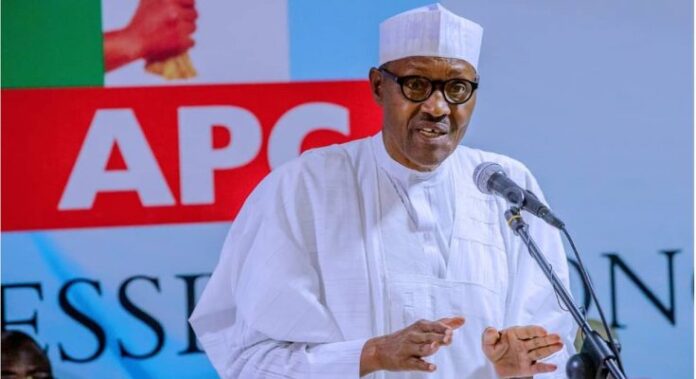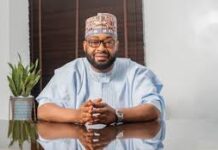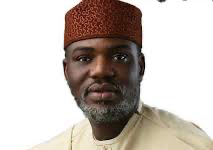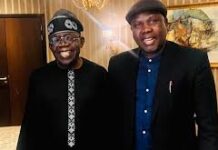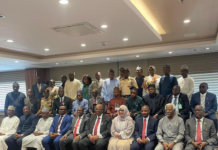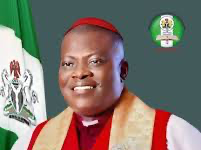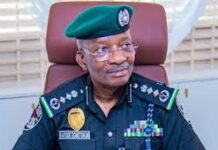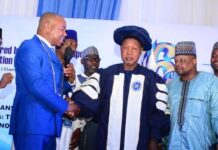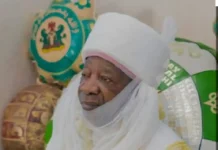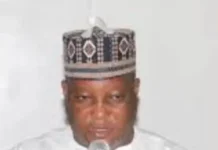On President Buhari, Kanu of IPOBand Igbos of Nigeria By Ahmed Musa Hussaini
POLITICS DIGEST – Am I happy that Nnamdi Kanu was arrested and brought home to face justice? Absolutely yes! With every criminal out of the way, Nigeria is safer, and the Nigerian will is strengthened. The long arm of the law will catch up with every criminal.
Now, I see a lot of attempts by closet Ipob supporters and some timid Igbo intellectuals to whitewash the crimes of Nnamdi Kanu by linking his extremism to Buhari’s actions. Let me address some of the issues here.
1. There’s no doubt that President Buhari has mismanaged the crisis. But his mismanagement of the crisis is in seeing it as a security issue rather than the political issue it originally was, before it metamorphosed into its current form. As I wrote then, militarizing the conflict, instead of pursuing political solutions first, risk creating a feeling of collective victimhood among communities who feel marginalized by the center.
2. The claim that Ipob became violent after the military stormed Kanu’s residence contradicts even publicly available records. Ipob was already carrying out secret killings and targeting of northerners as far back as 2015. The storming of Kanu’s residence occurred in 2017 after he continued to escalate his campaign of hate and violence against the Nigerian state.
3. Whenever any action against Ipob is taken, we are reminded that it is an action against Igbos. While concerns over human rights abuses are in order, Ipob doesn’t represent Igbos. Not even Ohaneze Ndigbo does. The only legitimate representatives of Igbo are the elected leaders of Southeastern Nigeria and I don’t know when Nnamdi Kanu was elected.
4. To conflate Ipob with Igboness is to presuppose two things: that the Igbos support and endorse Ipob’s campaign of hate and incitement, and that Nnamdi Kanu represents the yearnings and aspirations of Nigerian Igbos. Both are false. Among Nnamdi Kanu’s victims are soldiers, police officers, election officials, business people and government officials of Igbo extraction.
5. Ipob is first and foremost, the failure of Igbo leadership, the same way that Boko Haram is a failure of northern leadership. To say President Buhari marginalized the Igbos is to also ignore his own political experience of the region where twice he had entered elections with Igbo running mates and twice he had woefully underperformed in the Southeast.
Read Also:
6. The role of Southeast leaders before and after the defeat of Goodluck Jonathan, and not just Buhari’s actions, fed the Ipob Frankenstein. The Southeast, in its opposition to Buhari, appeared more Jonathan than even the Niger Delta. It is the Southeast leaders who fed their people on a steady diet of ethnic and religious propaganda against the Buhari candidacy and his subsequent emergence as president.
7. No doubt there is lopsidedness in the distribution of political positions. But you don’t confront perceived marginalization with hate, you confront it with political dialogue. Politics is a game of give-and-take, and to whom much is given, much is also received or expected. But beyond that, the true test of marginalization is in the distribution of government projects. Today, the Southeast region, which contributed less than 5% of Buhari’s vote tally, has benefitted more from infrastructure projects than my own Northeast region, which contributed the second largest share to the president’s election and subsequent reelection.
8. While I believe the president could have done better with political appointments, I also believe Southeast leaders refused to move on from Jonathan’s defeat even after Niger Deltans (who are the true owners of Goodluck Jonathan) had moved on and secured beautiful concessions. If that was meant to force the hands of the government, it politically backfired, thereby widening the chasm of polarization and distrust.
9. Nnamdi Kanu is a Frankenstein. He was recruited by MASSOB, and tasked with managing the hate-filled Radio Biafra. He instead abandoned Massob and used the platform to create his own secessionist enterprise that could afford his then homeless ass some Fendi apparel. Expectedly, he styled himself the supreme leader, sidelining and ostracizing every member that questions his decisions.
10. Now, where do we go from here? Nnamdi Kanu will have his day in court. He will be made to answer for his crimes. But will that heal the wound of polarization and division he helped create? What about his victims, both the ones whose killings he incited and the young Ipob boys he sent to their early graves while ensconced in his European sanctuary?
11. No doubt the question of Biafra still remains unsettled. But make no mistake, Kanu is not after Biafra. What he is after is an Igbo ethnic Bantustan with him as its supreme leader. I support self-determination and I support any legitimate constitutional process that will allow for peaceful dissolution of the Nigerian union. But I’m of the realization that no country in the world would ever make it easy for any of its constituent parts to leave. Know this and have some peace.
12. Nnamdi Kanu is a criminal. He is no freedom fighter. He is a thug, a terrorist and a fraud. He’s part of the campagn of disinformation and incitement that burnt parts of Lagos during the Endsars protest. He’s behind the campaign of terror that led to the killings of innocent Nigerians and members of the Nigerian security in the Southeast. Whoever is not happy that this cheap fraud is in Nigeria’s custody is a terrorist sympathizer and Nigerian enemy rolled into one.
Ahmed Musa Hussaini writes from Gombe

